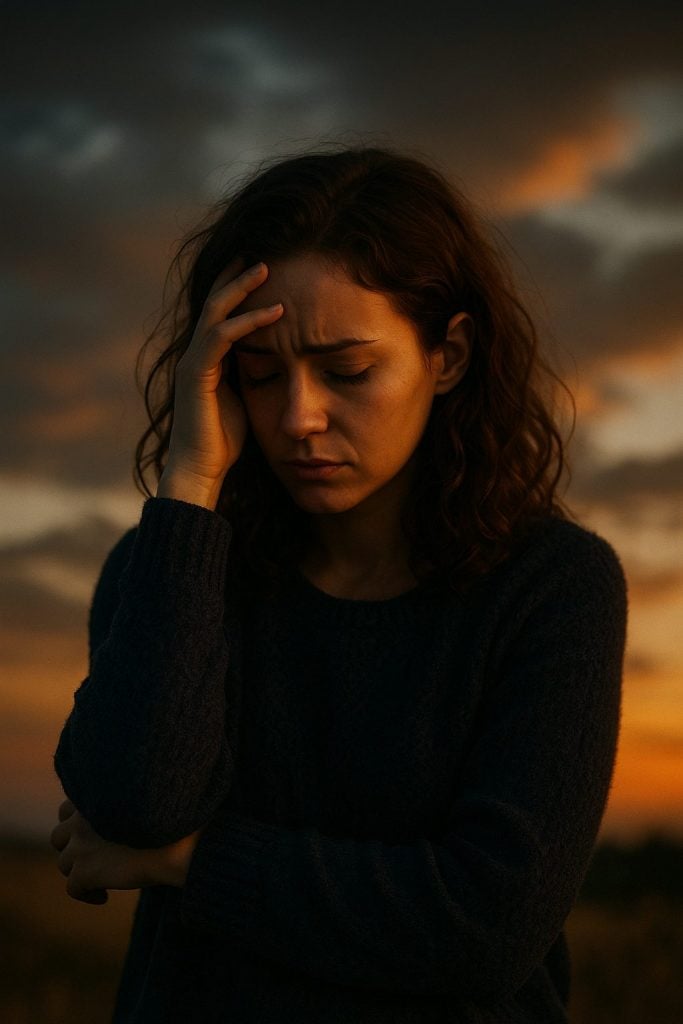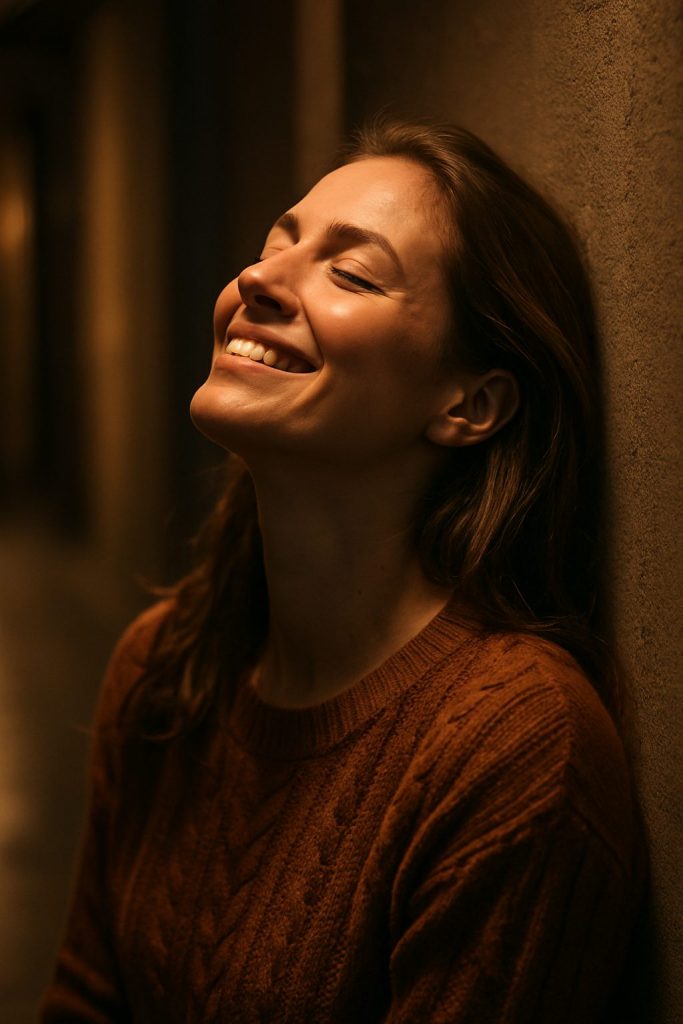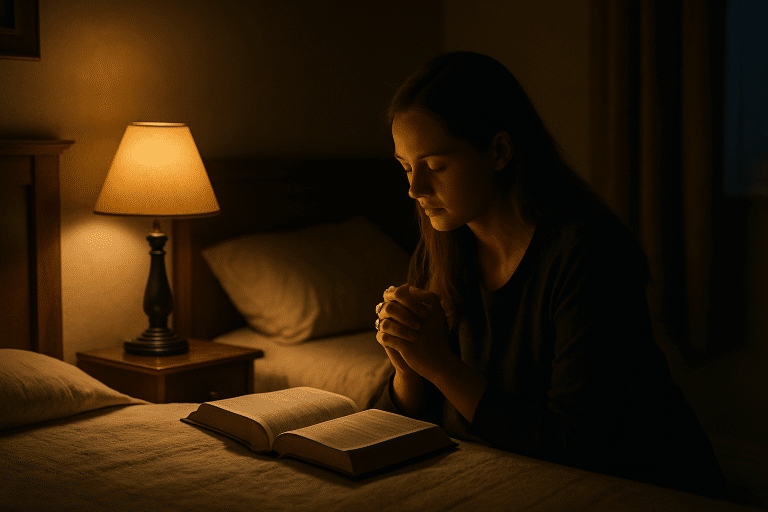Feeling Overwhelmed With Life And Anxious: Christian Guide
Estimated reading time: 7 minutes
If you are feeling overwhelmed with life and anxious, you are not broken or alone. Many believers quietly carry a heavy mental load as work, family, finances, and constant notifications crowd the heart. Scripture recognizes this reality and invites us to cast our cares on the Lord. At the same time, modern clinical science explains why your body feels stuck in high alert, and how simple shifts help you settle. This guide blends biblical wisdom with evidence‑based tools so you can move toward steady peace in Christ.
Practically, your nervous system may be firing its fight‑or‑flight response all day. Consequently, stress hormones speed your pulse, tighten muscles, and cloud thought. However, you can calm that response through small, doable practices. Moreover, you can renew thought patterns with truth so fear loses volume. Because faith and wise action work together, we will pair Scripture with proven skills like deep breathing, cognitive reframing, healthy routines, and help from wise professionals when needed.
As you read, you will find short steps you can take today, links to internal resources such as deep breathing exercises, prayer for anxiety, and Bible verses for anxiety, plus key research like the science of prayer and how psychologists help with anxiety. Above all, remember that Jesus offers real rest to weary people; therefore, you can expect progress as you take the next right step.
Why You’re Feeling Overwhelmed With Life And Anxious
Your body’s alarm system is God‑given and good. When threats appear, your amygdala signals danger and releases adrenaline and cortisol. Under chronic pressure, however, that system stays on, which drains energy and magnifies worry. As a result, ordinary tasks start to feel gigantic. You may notice a racing heart, shallow breathing, or rumination that loops through worst‑case scenarios.
Biblically, fear does not mean failure. David cried out when his heart felt overwhelmed, and Paul admitted he despaired of life itself. Therefore, you can be honest about distress while you seek God’s presence and practical care. Clinically, researchers show that supportive habits and GREAT stress‑management practices reduce anxious reactivity over time. In addition, faith‑filled prayer correlates with calmer responses to stress in several studies, aligning with everyday experience in the church.
Because thoughts shape feelings, distorted stories such as “I will fail” or “everything must be perfect” often fuel anxiety. Thankfully, cognitive‑behavioral therapy (CBT) teaches people to test those thoughts against evidence and replace them with balanced truth. Christians can do the same by renewing the mind with Scripture and wise counsel. In short, both the Bible and clinical science point to hopeful, learnable skills you can practice today when you’re feeling overwhelmed with life and anxious.
Practices That Calm Anxious Overwhelm (Faith + Science)
Pray And Release Your Burdens
Begin with honest, consistent prayer. Present every worry to God with thanksgiving, and expect His peace to guard your heart. Interestingly, laboratory and survey data suggest that prayer can elicit a relaxation response that quiets the stress system; see this overview of prayer and physiology. To make prayer tangible, try speaking aloud during a walk or writing a short “cast‑your‑cares” list each night. For more structure, consider this prayer for anxiety guide.
Breathe To Engage The Vagus Nerve When Feeling Anxious And Overwhelmed
Slow, diaphragmatic breathing activates the vagus nerve and shifts the body toward “rest and digest.” For a how‑to guide, use our deep‑breathing walkthrough; for background, read this explanation of vagal tone and stress. Try a simple 4‑7‑8 cycle for one minute, then evaluate how your body softens. Repeat several times a day, especially before bed or meetings. Because the body teaches the brain, you often feel calmer before thoughts change.
Breath Prayer (Ancient And Practical)
Pair each inhale and exhale with a short Scripture phrase. For example, inhale “The Lord is my Shepherd,” exhale “I lack nothing.” Many believers find this practice grounds attention in Christ while nervous‑system arousal falls. Additionally, a small randomized study showed that spiritual meditation reduced anxiety and increased pain tolerance compared with secular methods; see this PubMed summary. When you feel anxious about life, begin here for two minutes and repeat later in the day.
Renew Your Mind With Scripture And CBT
List a common fear on the left side of a page, then write a balanced, biblical response on the right. This exercise mirrors CBT’s thought records. For example, replace “I can’t cope tomorrow” with “God’s grace meets me daily; I will take the next right step.” For structured help, review Christian meditation for anxiety and key verses that anchor hope. Over time, your mind learns a new reflex, so spirals shorten and your confidence grows.
Stabilize Sleep, Movement, And Food
Protect seven to eight hours of sleep, move your body most days, and keep caffeine in check. Brief walks and light strength work can lower baseline stress and lift mood. For a helpful overview, skim this APA page on anxiety supports and NIMH’s GREAT checklist. Furthermore, schedule Sabbath‑style margin so recovery becomes a rhythm, not a rare reward. When you are feeling anxious and overwhelmed, these basics often create the fastest relief.
For extra skill‑building, explore grounding techniques for flash spikes and tools that break overthinking. When panic surges, the body often leads; therefore, short sensory resets and safe movement can interrupt spirals quickly. Likewise, brief worship and gratitude phrases redirect attention toward God’s presence in the moment.

When Personal Tools Aren’t Enough: Christian Anxiety Help
Sometimes feeling overwhelmed with life and anxious persists despite consistent practice. In that case, wise help can accelerate healing. A licensed counselor can personalize CBT, teach exposure skills, and coordinate care. Choose a clinician who respects your faith. Meanwhile, pastors and small‑group leaders can offer prayer, Scripture, and community. Stigma helps no one; seeking help reflects courage and stewardship.
Therapy and medicine often work well together. Selective serotonin reuptake inhibitors, for example, may reduce chronic anxious arousal over weeks. Qualified professionals monitor dosing and side effects. For balanced education, review this peer‑reviewed overview of CBT and APA guidance on anxiety care. If personal safety ever feels at risk, contact local services immediately and tell a trusted person at church so you don’t carry the burden alone.
Importantly, ask trusted friends to “bear burdens” with you through check‑ins and practical support. Additionally, celebrate small wins so perseverance feels worthwhile. Because God uses means, He often works through sleep, therapy, relationships, and medicine to restore capacity for joy and service. For ongoing biblical help, see this concise anxiety guidance.
Amazon Recommendations To Support Calm And Renewed Focus
These items complement the practices above. They do not replace medical care or prayer; however, they can make healthy routines easier. Each link goes to Amazon and includes an affiliate tag that supports this work at no extra cost to you.
- “Anxious for Nothing” by Max Lucado — gentle, Scripture‑rich guidance for everyday fear. View on Amazon.
- “Get Out of Your Head” by Jennie Allen — practical strategies to interrupt spirals. View on Amazon.
- The Anxiety & Phobia Workbook by Edmund Bourne — step‑by‑step CBT exercises. View on Amazon.
- Weighted Blanket (15 lb) — many people find deep pressure calming before sleep. View on Amazon.
- NIV Journal the Word Bible — space to write prayers and renew the mind daily. View on Amazon.
For deeper spiritual practice, review a Christian meditation overview and this practical prayer guide while you keep this list of comforting verses close at hand.

Conclusion: Choose Peace With Christ Today
Today, take one next right step. Because the Holy Spirit meets you in weakness, small faithful actions compound into change. Try one breathing cycle, text a friend for prayer, or journal three lines of gratitude. As you practice, you will likely notice that the alarm inside quiets more quickly and hope lasts longer.
Remember, when you are feeling overwhelmed with life and anxious, Jesus stays near. Therefore, cast your cares on Him while you apply simple skills, lean on community, and seek professional care if needed. Over time, most people regain capacity for joy and service. With God’s help, you can too. For more step‑by‑step encouragement, see our cornerstone overview on faith‑based anxiety guidance.







